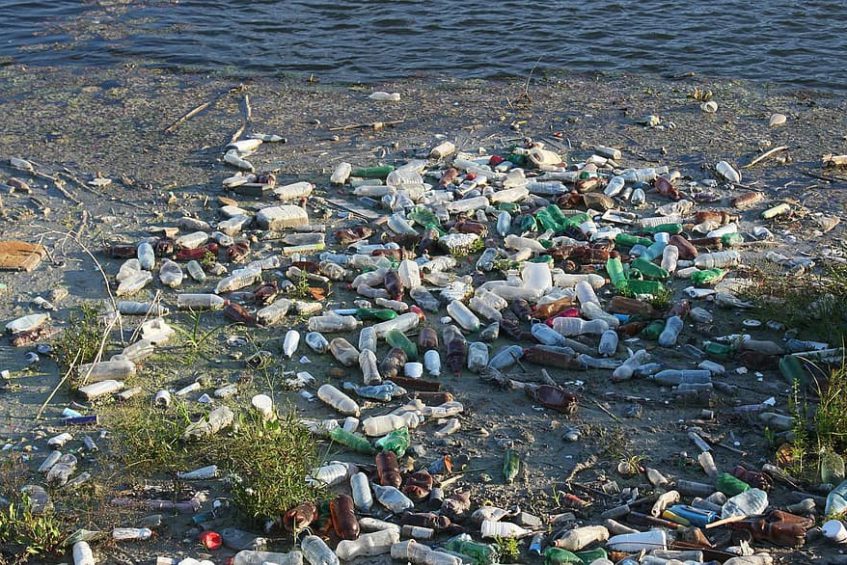
Plastic bottles dumped floating in river. | File photo
An environmentalist has called for an urgent solution to the uncontrolled disposal of solid wastes in and along the Nile River saying they pose health risks to the citizens.
Charles Onak who heads the Civil Society Coalition on Natural resources says the Nile is heavily polluted in Juba by plastic bottles and rubbish that are directly poured into it.
He also noted that Pharmaceutical, agriculture and industrial wastes that are either dumped in or close to the Nile River may in the long-run affect the Nile ecosystem, and aquatic and human health.
With plastic pollution piling up on harbor and islands in the Nile, Onak fear the developments could turn fatal if no response is initiated.
“The waste can affect water and in reverse affect people as well, there is a need for major awareness to ensure that all these materials are not poured directly into the water,” Onak told Eye Radio.
“We have seen how these materials can leak, people should learn the culture of not pouring or just releasing all these toxic materials into the River.
“There is a need to enlighten the public not to throw whatever toxic materials into the river because it can reverse and come back to you and affect you, your children and your animal that you eat always.
“It is the role of every citizen in South Sudan to ensure that all these materials, for instance plastic, should be handled in a good way that protects us all.”
Onak now recommends that laws protecting the water body be enforced and awareness-raising is carried out among the citizens to minimize the pollution.
“The most important thing to be done by the government is to enforce laws and regulate these toxic materials being released in the water, especially regulating companies not to release chemicals or toxic materials in the water,” Onak said.
“There is a need that dumping sites should be far from the river to minimize the contact, and water being polluted by all these waste, their need for regulation and there is need for the government to enforce the law.”
In 2016, the Ministry of Environment accused Hotel owners in Juba for dumping waste into the Nile River.
Residents of Juba are still dependent on the Nile River water for drinking and other domestic use.
A recent study by the University of York shows that pollution of the world’s rivers from medicines and pharmaceutical products poses a “threat to environmental and global health.
The report said, the increased presence of antibiotics in rivers could also lead to the development of resistant bacteria, damaging the effectiveness of medicines and ultimately posing “a global threat to environmental and global health”.
The most polluted sites were largely in low- to middle-income countries, and in areas where there was sewage dumping, poor wastewater management and pharmaceutical manufacturing.
Support Eye Radio, the first independent radio broadcaster of news, information & entertainment in South Sudan.
Make a monthly or a one off contribution.
Copyright 2024. All rights reserved. Eye Radio is a product of Eye Media Limited.